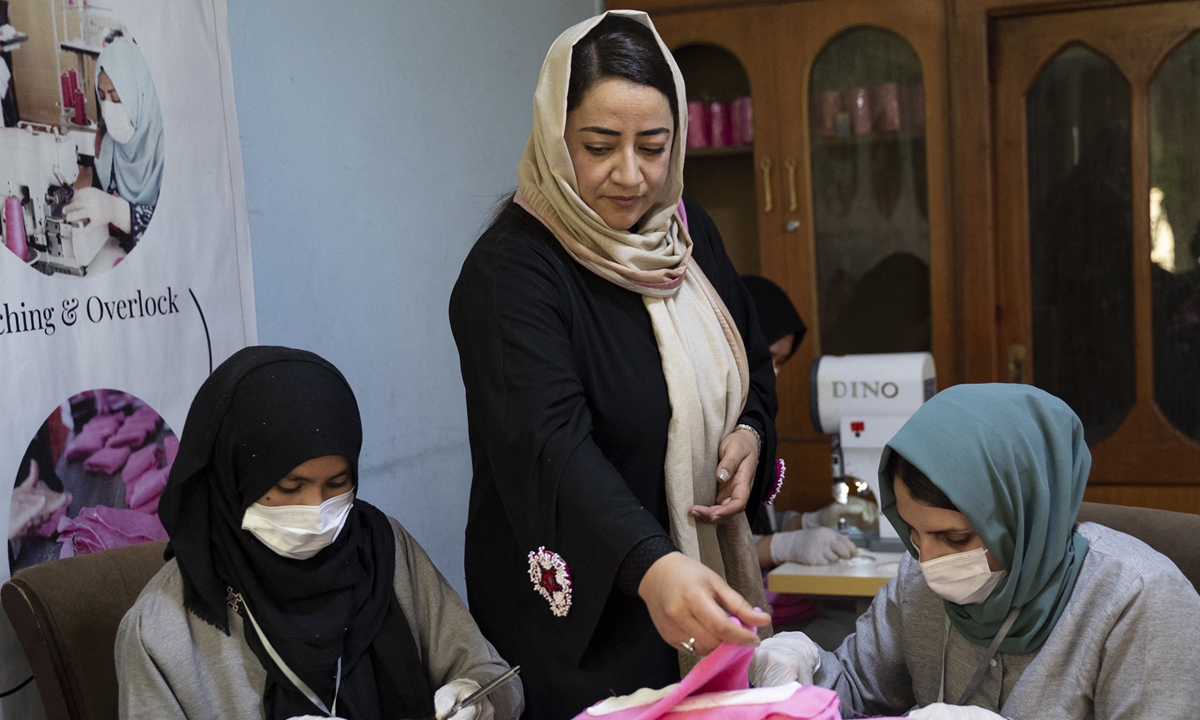IN-DEPTH / IN-DEPTH
China prefers talks rather than threats in persuading Afghan govt to make changes on women’s access to education

Afghan women work at a fabric sanitary workshop in Kabul, on July 31, 2023. Photo: AFP
China attaches great importance to promoting gender equality and also has great concern for women's rights in Afghanistan, but it will not threaten to cut off aid to Afghanistan as have many Western countries to exert pressure, which would only exacerbate conflict, said Zhao Haihan, Chargé d'Affaires of the Chinese Embassy in Afghanistan.Since the establishment of the Taliban interim government in Afghanistan, a series of policies restricting women's access to education and employment has been implemented, attracting much attention from the international community.
Zhao said that Chinese government through the embassy in Afghanistan has also made inquiries about this issue to Afghan officials and received a response that Afghanistan is establishing relevant committees to study and tackle issues such as the creation of a women's education curriculum, and they will reinstate access to higher learning once such provisions are in place, after existing internal disagreements are resolved.
Some Afghan officials reached in the course of finding a resolution said that they do value the protection of women's rights. After the Taliban took over, they immediately banned the prevalent practice of child marriage and fought for equal inheritance rights for women, especially widows. However, these positive changes have been ignored by the international community, especially by the US and other Western countries.
The approach taken by some Western countries, including issuing threats to cut off aid to Afghanistan to pressure to force the Afghan government hand are unlikely to exert effect as the government has a strong sense of sovereignty and consistently opposes foreign interference, said Zhao.
"We prefer to work in ways that are in line with Chinese traditional culture and diplomatic principles. We will initiate full and patient communication to persuade them to adapt to the development trend of the times and the expectations of the people, and make positive changes themselves. This approach may be more effective," said Zhao.
It is also important to emphasize that while women's rights are important, they are only part of the many issues in Afghanistan. Moreover, the unfair treatment of Afghanistan, such as the imposition of unjust sanctions and asset freezes, should not be ignored. The international community needs to comprehensively, objectively, and fairly address and resolve issues in Afghanistan, without selective disregard for certain aspects, said Zhao.


